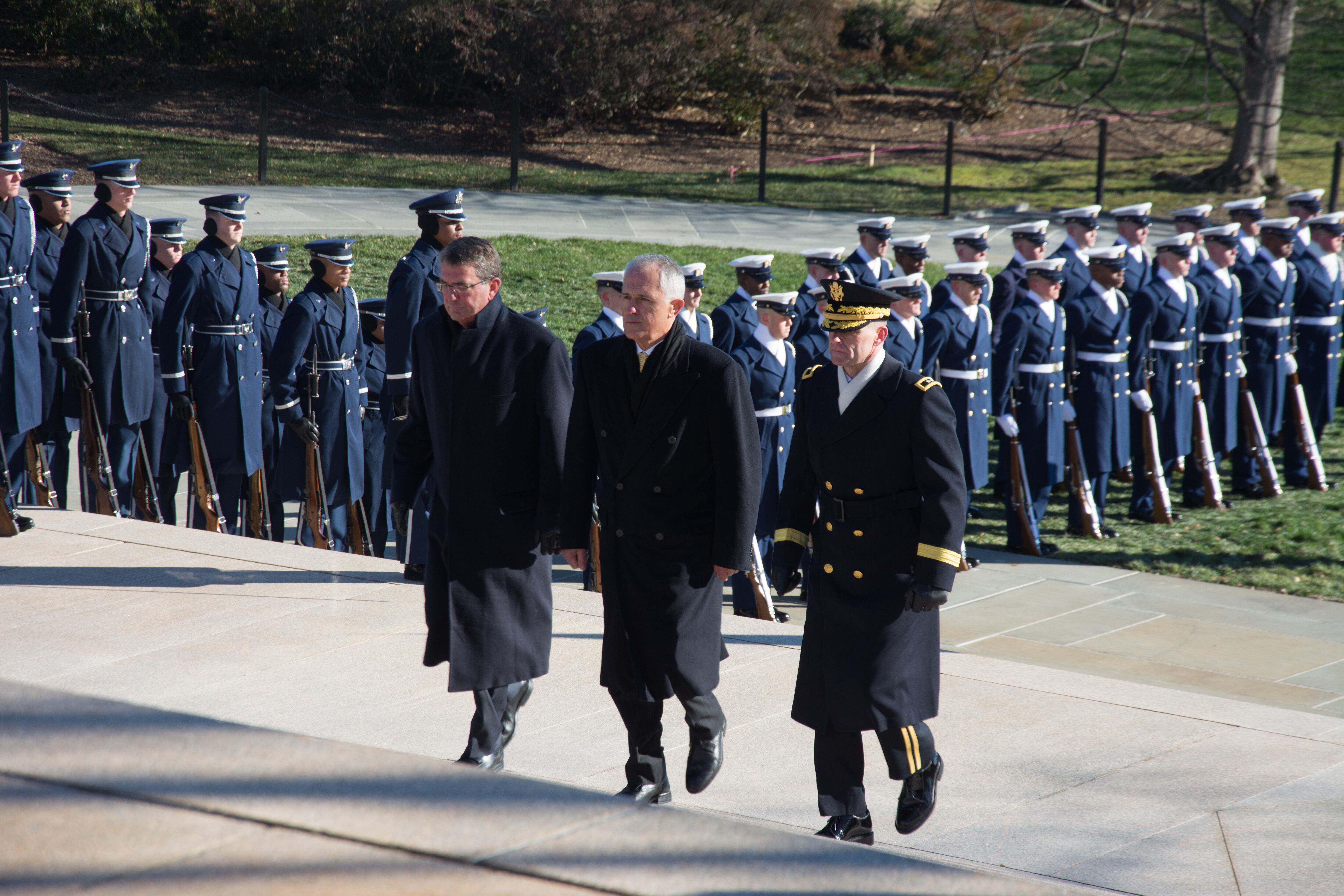Australian Prime Minister Malcolm Turnbull has arrived in Washington for high-level talks focused on a host of international security matters, principally the fight against Islamic State extremists in Iraq and Syria.
Turnbull's visit, his first since taking office in September, comes as the Obama administration continues to pressure Australia and other allies to increase their stake in the ISIS fight, a request Australian leaders have so far resisted. Delegates from throughout the U.S.-led coalition plan to discuss the campaign later this week in Paris.
On Monday, the prime minister attended a wreath-laying ceremony at the Tomb of the Unknown Soldier in Arlington National Cemetery before accompanying Defense Secretary Ash Carter to the Pentagon.
In a statement, Defense Department officials said Carter and Turnbull discussed "recent developments in Iraq and Syria, and the need to continue close collaboration on security issues in the Asia-Pacific region," where China's military ambitions remain an important focus.
"Secretary Carter expressed appreciation for Australia's contributions to the counter-ISIL coalition, as well as Australia's continued support in Afghanistan," the statement reads, referencing one the abbreviations used for the Islamic State group.
Turnbull recently traveled to Afghanistan and Iraq, where Australian military personnel are providing combat training for Iraqi security forces. Additionally, six Australian F/A-18 Hornets are flying in support of the air campaign against ISIS. In all, there are nearly 800 Australian troops deployed to the region.
Australia's defense minister, Marise Payne, issued a statement last week indicating these "substantial contributions" would continue, while saying that the government in Canberra has committed to an ongoing review of the resources it can and should make available to the ISIS fight.
On Tuesday Turnbull will meet with President Barack Obama to discuss "a range of bilateral, regional and global issues," including the U.S.-Australian alliance, cooperation in Iraq and Syria and the conclusion of negotiations of the Trans-Pacific Partnership trade agreement, according to the White House.
"Australia is a close partner on a range of issues, from promoting innovation and economic growth to ensuring regional security and fighting ISIL," said a State Department official.
The Associated Press contributed to this report.





